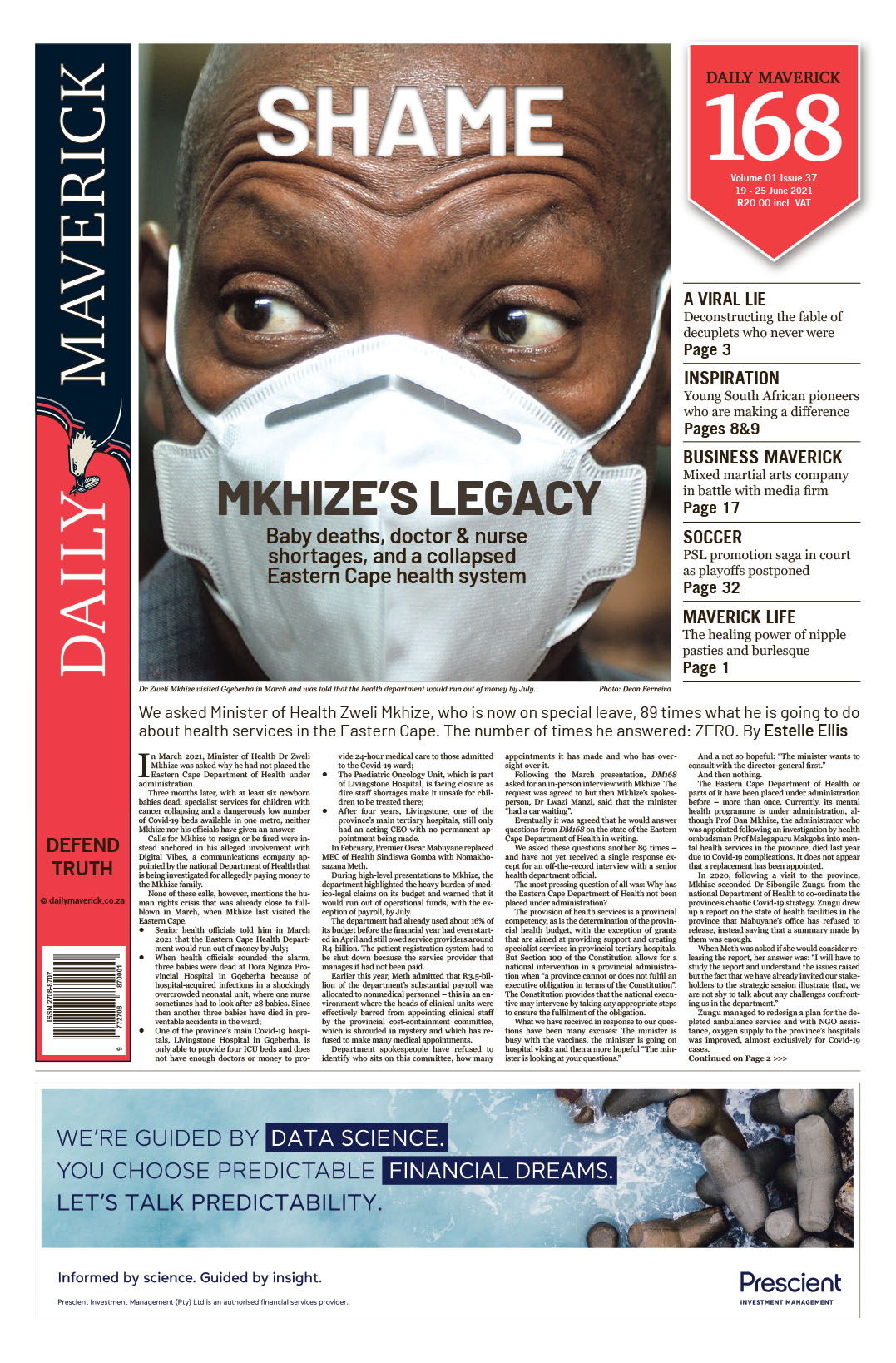First published in the Daily Maverick 168 weekly newspaper.
I am sure all of us, no matter how privileged, have run the gamut of morbid thoughts this past year of all the possible catastrophes that could befall us. Losing a loved one, our assets, our job or our health. One of my recurring thoughts since the pandemic started has been about losing my house. This is a thought unfounded in logic. There has been no credible threat to my home ownership. However, watching people lose their jobs and assets during the pandemic brought on my own financial anxiety.
In my mind, South Africa is a financially traumatised nation. Every other headline and conversation is about the misappropriation and looting of state funds of such numbers that former president Jacob Zuma could not even pronounce. It’s like living in a house with parents whose ineptitude with money has endangered your life. Being confronted daily by headlines about the mishandling of money has telegraphed unhealthy messages about money affecting our psyches and playing up our anxieties around money, much like children raised in financially fraught homes.
The fact is, we have black and white leaders both in the private and public sector who are afflicted by financial trauma and who are now in charge of the national purse and large portions of the economy. What does it mean to come from financially underprivileged backgrounds only to be entrusted with the national purse, without dealing with the residual effects of one’s financial trauma and shame? In my opinion, people who are corrupt have unhealed financial trauma and anxiety. This seeks to understand and not justify their behaviour.
The high youth unemployment numbers released a couple of weeks ago invoked our scarcity reality; the feeling and reality that we do not have enough – not enough jobs, housing, healthcare, quality education, electricity … When all we see around us is constant mismanagement of funds juxtaposed with the constant denial of basic services because of lack of funds, we cannot help but feel belittled and gaslighted. Money becomes illusory – abundantly available for plunder but unavailable for humanitarian relief.
Because we are mired in our country’s inability to balance its books, it is that much more difficult to recognise our own unhygienic financial behaviour. The limited examples of good governance can make us believe that the norm regarding money management is dysfunction. We may convince ourselves that living paycheque to paycheque is normal because that’s what we see all around us – a country in constant survival mode. There is no abundance, and where there is abundance it is illicitly gained. My own fear of money is due to the belief that those who have a lot have cut corners. Any desire for money is suspect, owing to the grossly materialistic and financially perverse culture we live in, where people would steal from their own.
Financial trauma and anxiety are acutely felt in the black community because of our impoverishment under apartheid. This trauma led our parents to work themselves to the bone to educate us so that we could pursue stable careers where we could take care of ourselves and our communities. We all know about black tax, but rarely do we talk about the mental health issues attached to black tax. Today my generation is under pressure to create generational wealth as we have seen white people do. However, this seems like an impossible ambition considering how white generational wealth was amassed. The game is rigged but our financial traumas, anxieties and burdens are real.
Until we address our dysfunctional relationship with money beyond the narrow prism of corruption, but with a nuanced understanding of the energy that money creates in our lives and how it affects our thoughts, emotions and behaviours, the future will remain bleak. DM168
This story first appeared in our weekly Daily Maverick 168 newspaper which is available for free to Pick n Pay Smart Shoppers at these Pick n Pay stores.




















A very thought provoking article.
In my opinion, healing will only come from getting back to basics like – a decent family structure where children grow up with a father and a mother and not on government grants. Where education is a right and not a luxury. Where advertising and social media don’t create unrealistic expectations. Where respect for others and oneself comes naturally. Where politicians believe and act as servants of the people and not the other way around.
Start with Birth control and Education….the rest will follow!
Life is abundant but we choose scarcity. How could anyone control others in abundance? The answer, noone could. But love it or hate it economics the science of managing scarcity has produced more improvements in the world we live in than causing poor outcomes. Read the facts. For example, go to Ourworld in data and see the improvements of the last couple of centuries. Or read Harari’s books. Can we do better? Of course and we will. Have inequalities ever been made more visible, or being given more attention. At times the human development process looks more like a drunk wandering in fog than something organised by the most intelligent specie on the planet. We will achieve our shangri-la, provided we recognise your shangri-la is not mine, and mine not yours. We embrace our differences and stop governments from controlling us by telling us they are the panacea to fix all ills, when unleashing each person’s human potential is the goal. Money has become an end instead of a means. Power has become all too important in making money. Influences, gate keepers, network captains call them what you will, that add no value, but increase prices whilst delivering nothing tangible. We need to return to more basic values where money is derived from an exchange of goods and services which are of real value, creating value. Localised decision making wherever possible with maximum exchange of information on outcomes of decisions, based on facts not opinions.